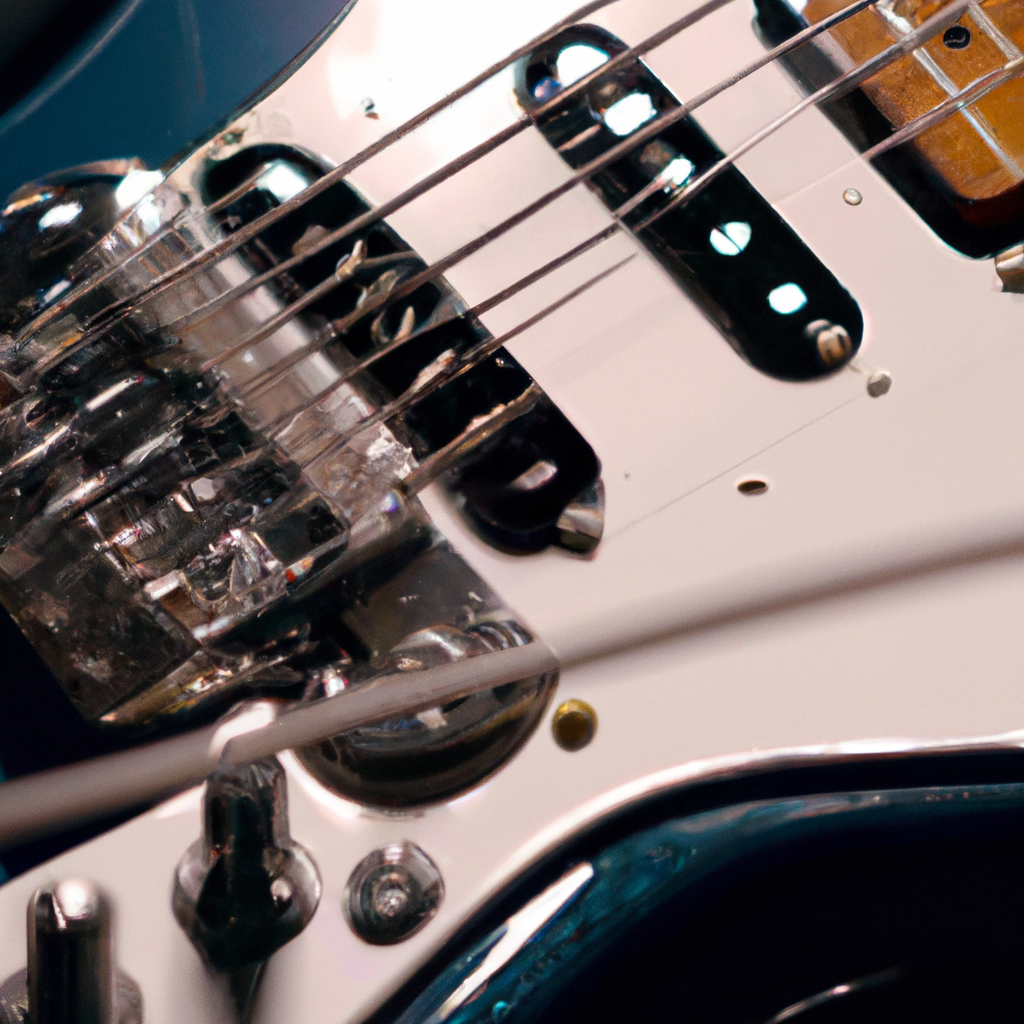Electric guitars have become one of the most popular instruments in modern music, but how do they work? The answer to this question involves a combination of guitar mechanics, guitar parts, guitar construction, guitar technology, and guitar history. In this article, we will explore how electric guitars work, including the role of guitar pickups, guitar strings, guitar amplifiers, and guitar sound.
Guitar Mechanics
Before diving into the specifics of electric guitars, it’s important to understand the basic mechanics of all guitars. All guitars, whether electric or acoustic, work on the same basic principle: plucking a string causes it to vibrate, which creates sound waves that travel through the air.
Guitar Strings
The strings on a guitar are responsible for producing the sound. When a string is plucked, it vibrates, creating sound waves that travel through the air. The thickness and tension of the string determine the pitch of the note played.
Electric guitars typically have steel strings, which are different from the nylon or gut strings used on classical or acoustic guitars. Steel strings produce a brighter, more metallic sound that is well-suited for rock, pop, and other modern genres.
Guitar Pickups
Unlike acoustic guitars, electric guitars require an external device to amplify their sound. This is where guitar pickups come in. Guitar pickups are small magnets that are mounted under the strings. When a string vibrates, it creates a magnetic field that is picked up by the pickup.
There are two main types of guitar pickups: single-coil pickups and humbucker pickups. Single-coil pickups are the most basic type of pickup and are typically found on Fender-style guitars. Humbucker pickups, on the other hand, are more complex and produce a thicker, warmer sound. They are commonly found on Gibson-style guitars.
Guitar Amplifiers
Once the sound has been picked up by the guitar pickups, it needs to be amplified. This is where guitar amplifiers come in. Guitar amplifiers take the weak signal produced by the pickups and boost it to a level that is audible through speakers.
There are many different types of guitar amplifiers, ranging from small practice amps to massive stage rigs. Some amps are designed to produce a clean, pristine sound, while others are meant to distort the sound for a more aggressive, overdriven tone.
Guitar Sound
The sound of an electric guitar is influenced by many factors, including the type of guitar, the type of pickups, the type of strings, and the type of amplifier. These factors can be adjusted to create a wide range of sounds, from clean and bright to distorted and aggressive.
Guitar Construction
The construction of an electric guitar also plays a role in its sound. The body of the guitar is typically made from wood, which can have a significant impact on the tone of the instrument. Different types of wood have different tonal characteristics, with some woods producing a brighter sound and others producing a warmer, darker sound.
The neck of the guitar is also an important factor in the sound of the instrument. The length and shape of the neck can affect the way the strings vibrate and the overall playability of the guitar.
Guitar Technology
Over the years, guitar technology has advanced significantly, with new materials and designs being used to create better instruments. For example, many modern guitars use carbon fiber or other composite materials to create a more stable and consistent instrument.
Guitar History
The history of the electric guitar is a long and fascinating one. The first electric guitars were invented in the 1930s and quickly gained popularity among jazz musicians. In the 1950s, the electric guitar became a staple of rock and roll, with artists like Chuck Berry, Elvis Presley, and Buddy Holly using the instrument to create iconic songs and sounds.
Conclusion
In conclusion, electric guitars work by using guitar pickups to capture the sound of vibrating strings, which is then amplified by guitar amplifiers. The construction of the guitar, the type of strings, and other factors also play a role in the sound of the instrument. Understanding how electric guitars work is essential for anyone interested in playing the instrument or producing music with it.







